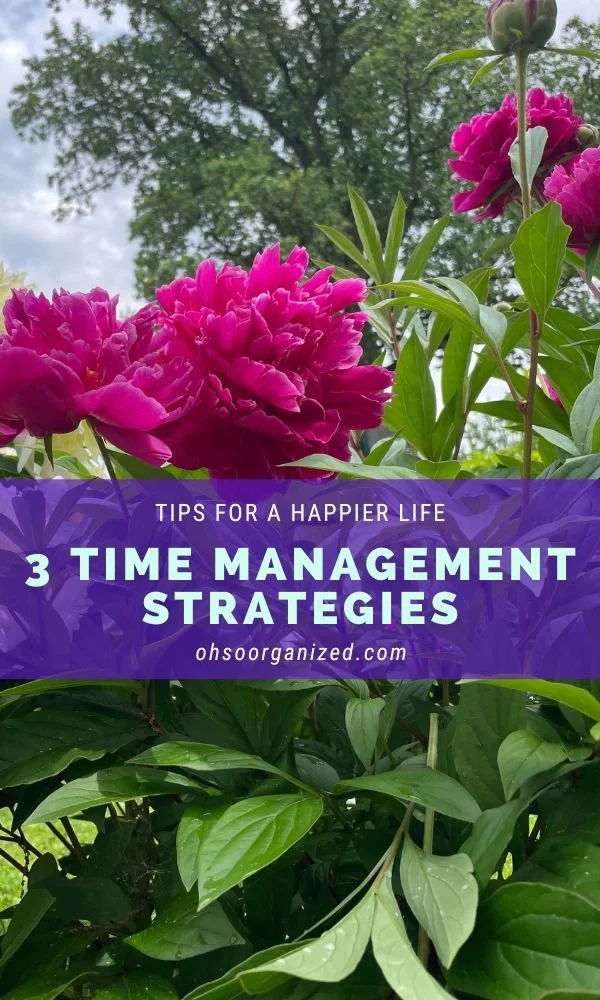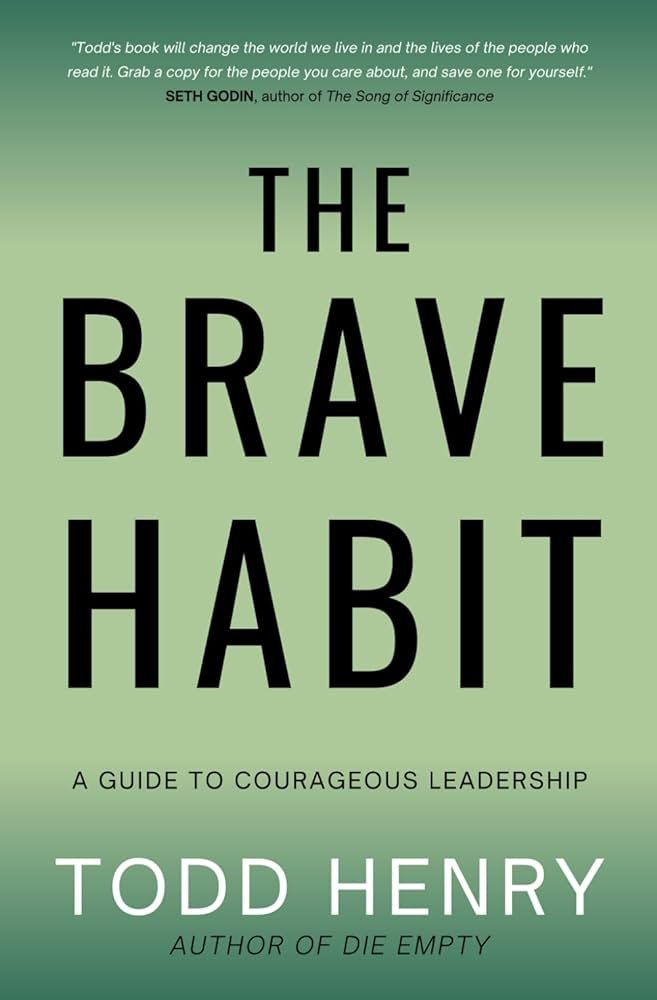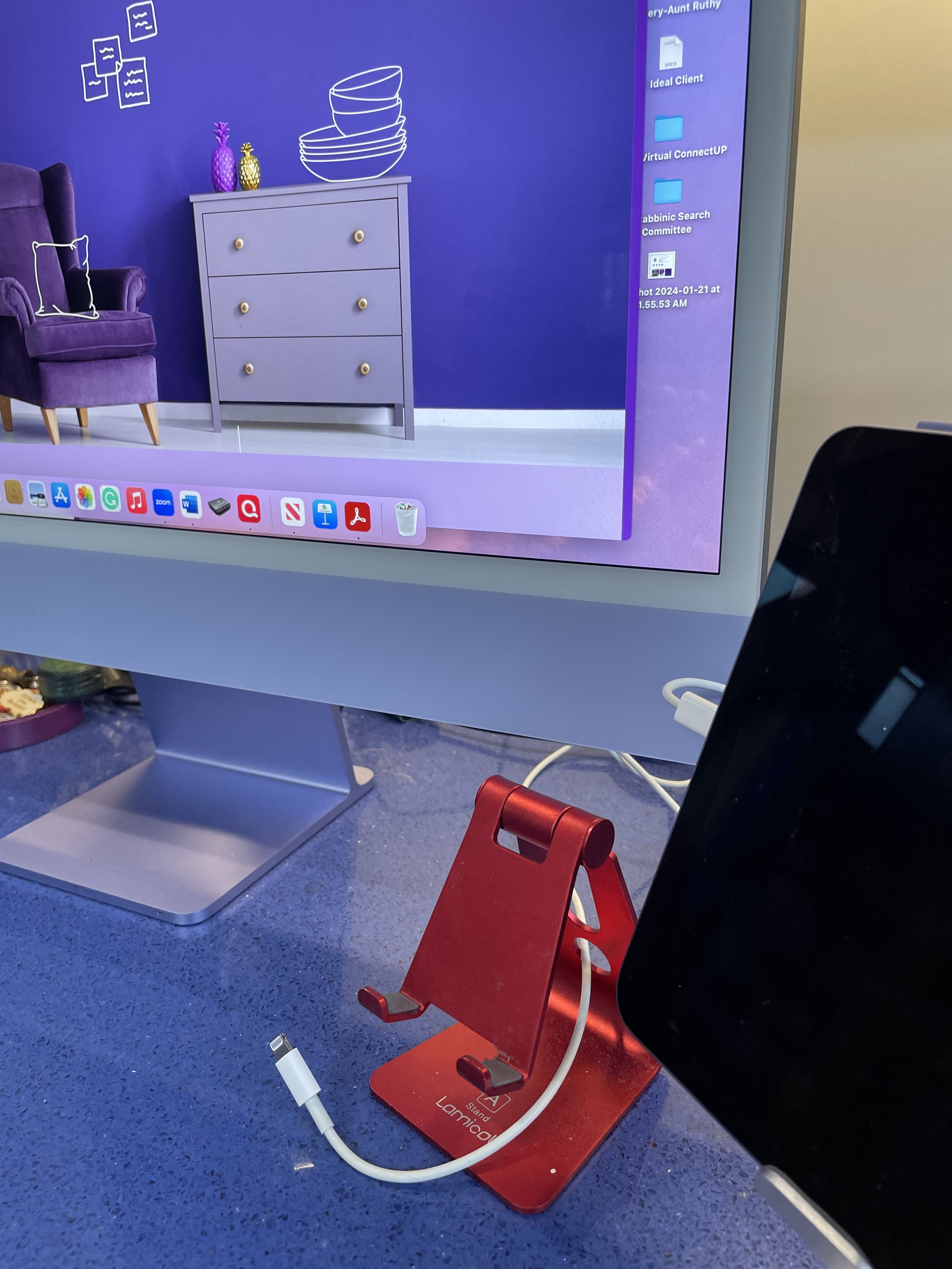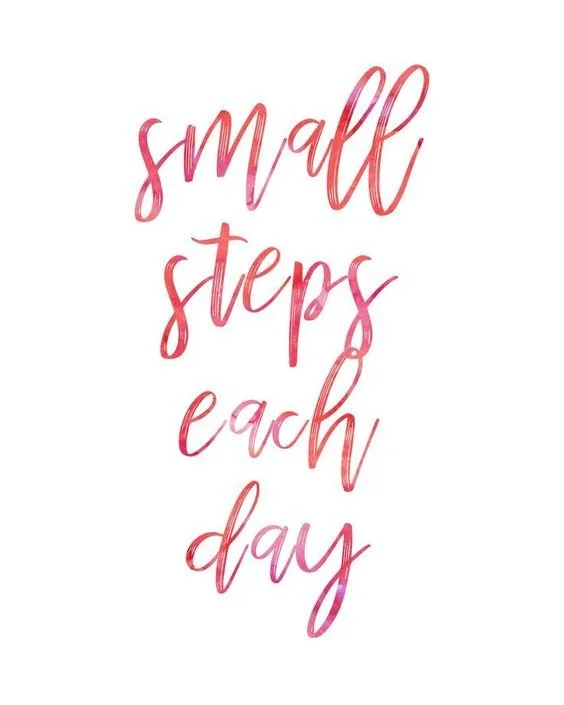Do you resist asking for help? Maybe you’re unsure who to ask, prefer to do things yourself, or feel too overwhelmed to figure out what guidance you need. However, there are so many reasons to enlist support.
As a professional organizer, I am in the helping industry and love assisting my clients. I help overwhelmed individuals challenged by disorganization get unstuck and organized. Services can include assisting with long and short-term projects, providing accountability, editing, decluttering, designing customized organizing solutions, brainstorming, and planning.
While I like to do many things independently, I ask for help, too. Support has been incredibly beneficial for:
Writing and publishing a book
Installing a new roof
Working on boards and committees
Trimming trees
Hosting holiday dinners
Maintaining my health
Producing my virtual workshops
Talking through personal and business challenges
“Having a need and needing help is not a sign that you’re weak. It’s a sign that you’re human.”
Does this sound familiar? If so, you’re going to love what follows. You’re about to discover uplifting stories about the power and relief of enlisting help.
I invited a marvelous group of colleagues to share their personal experiences. They describe their time to ask-for-help indicators and the value of listening to those cues. These generous friends include Diane Quintana, Ellen Delap, Janet Barclay, Janet Schiesl, Jonda Beattie, Julie Bestry, Kara Cutruzulla, Sara Skillen, Seana Turner, and Yota Schneider.
My deepest gratitude goes to this inspiring group for sharing their time, hearts, and wisdom with us. I asked them to respond to and elaborate on this prompt . . .
Describe one indicator that it’s time to ask for help.
10 Best Reasons to Ask for Help
Help Indicator #1: Annoyances
“The best indicator that you should seek help is when others call attention to how often (or for how long) you've mentioned a problem. Whether it’s a tech kerfuffle or health concern, a household area in disarray, or a financial hiccup, we may not notice how much we tolerate repeated annoyances. We get used to jerry-rigged computer solutions or an aching back, sagging closet shelves, or mystery fees. But when friends or colleagues reflect back to us that we’ve repeatedly referenced a frustration that we haven't made the effort to solve, it's a clue that it's time to seek professional guidance or outside support.”
Julie Bestry, CPO® – Certified Professional Organizer, Productivity Specialist, Author & Blogger
Help Indicator #2: Prioritization
“A solid indicator of needing help is when I’m feeling what I call ‘locked up.’ It’s challenging for me to prioritize. I start making weird little mistakes, and I’m exhausted. Physically, it feels like I’m surrounded by invisible walls. I try to get ahead of it and affirm that it’s not only acceptable to reach out for support but imperative. As someone who’s been a solopreneur for years (wearing all the hats!), now transitioning into a role with lovely people happy to help me, it’s fun - if a bit strange - to recognize I don’t have to do everything alone.”
Sara Skillen, PCC, COLC, CPO® – Director of Education, Coach, Author & Blogger
Help Indicator #3: Task Completion
“One indicator of when to ask for help is when you struggle to complete a task that you used to do easily.
In my case, I used to trim all the bushes along the front of our house. I own a power trimmer, and while trimming isn't glamorous, I was quite able to get the job done. Over the years, in spite of my trimming, the various bushes have grown, requiring me to reach higher and higher to trim the tops of the bushes. Last year, I realized that I could no longer reach high enough. I considered climbing a stool to trim the bushes, but the weight of the trimmer was hard to balance. I finally acknowledged that the job had gotten beyond my ability and brought in a third party. Yes, it cost me a bit of money, but in the end, it was the wisest, safest, and most efficient solution.
Seana Turner – Professional Organizer and Productivity Coach
Help Indicator #4: Technology
“I know it's time to ask for help when a task takes longer than I can reasonably bill for, especially if it’s due to technical issues beyond my expertise. Recently, I added an event calendar to a client’s website, but the registration buttons weren’t working. Instead of agonizing over it, I contacted my tech support team, and the problem was fixed in under 15 minutes. Having access to experts who can help in various areas—both business and personal—saves time and reduces stress.”
Janet Barclay – Certified Care Plans Specialist, Website Caregiver & Designer
Help Indicator #5: Emergencies
“When my clients first reach out to me for help, I often hear the expression, ‘so overwhelmed.’ I recently experienced that feeling myself. My husband had a medical emergency that landed him – and me by his side – in the ICU with no idea of how many days we would be there. For me to give him my full attention, I knew it was time to ask for help from my tribe. What burdens they lifted from me!”
Jonda Beattie – Professional Organizer
Help Indicator #6: No Progress
“It’s time to ask for help when I remain stuck, even after reviewing the problem and creating a plan for moving forward. If I’ve done all that work and still can’t progress, I am confident I need support and will get help.
My current problem is creating and implementing a marketing plan. I am a professional organizer and a former primary school teacher, but I do not have a business background, even though I manage and run my business. It has taken many failed attempts at marketing the different aspects of my business to get me to accept that I need hands-on help.
Diane N. Quintana, CPO-CD®, CPO® – Certified Professional Organizer, ADHD Organizing Specialist, Author & Blogger
“It’s time to ask for help when I remain stuck.”
Help Indicator #7: Collaboration
“I am a born collaborator! Any task has better results and is more fun when I collaborate. Also, I know it is time to enlist help when I have reached my final level of skill and know the project needs a tweak.
An example of this is opening my Etsy shop with new content. I reached a point where I knew that the e-book needed sparkle for effective marketing and professional appeal. Fortunately, I had identified an amazing collaborator with great design skills and knowledge of opening a shop. Enlisting help not only improved the end product but also made the process run smoothly. Having this positive experience also helps me know that this is the right decision to ask for help in the future.”
Ellen Delap, CPO® – Certified Professional Organizer
Help Indicator #8: Heavy Lifting
"Asking for help and getting the help we need the way we need it can be complicated. I was wired and conditioned to be self-reliant and independent, and I like to know how things work and how to fix them. Also, specific projects provide the creative outlet I need. Still, depending on the nature, goal, and cost of a project, certain things are better addressed by those who know what they are doing. As an example, this comes to mind.
When the pandemic hit, we invited our daughter to move back home with us. Her office in New York City, where she lived, had closed, and it made no sense to stay there. Until then, we used to do the heavy lifting whenever our daughters needed to move. This time, we hired a friend and professional mover to help. The experience was not only less stressful but almost enjoyable. Could we have done it ourselves? Sure, but it would have taken much more time and placed undue stress and burden on our bodies."
Yota Schneider, Certified Seasons of Change® Master Coach –Retreats Facilitator & Blogger
Help Indicator #9: Overwhelm
“I know it's time to ask for help when I feel overwhelmed, and sometimes it sneaks up on me. Recently, my mom's health deteriorated, which has caused many changes - big life events. As the organized sibling, I usually take the lead when things happen with Mom, but recently, I've been overwhelmed as things get added to the list of to-dos. I start worrying that I'm dropping the ball on something important.
Asking for help from my siblings and my husband has helped. We each take on tasks that fit into our schedules and lines of expertise. Keeping the lines of communication open through a text thread and phone calls is key to our efforts. We all want what's best for Mom, so my indicator of when it's time to ask for help is when I feel overwhelmed.
Janet Schiesl, CPO® – Professional Organizer, Owner of Basic Organization
Help Indicator #10: Perspective Shift
“I’ve been noticing a specific sensation: when I feel like I’m staring down a long, dark hallway without doors, it’s a sign my work or creative project is trapped in tunnel vision. I’m stuck asking, ‘How do I do this?’ when I should ask, ‘Who can help me do this?’ This reframing nudges me to clearly define my needs and the people who can help. Quickly, a new ‘who’ can illuminate the path, offer guidance, or simply encourage you to keep going – and suddenly, doors can appear.”
Kara Cutruzulla – Author, Lyricist & Project Coach
When did you recently ask for help? What benefits did you experience? I’d love to hear your thoughts. I invite you to join the conversation.
If you feel stuck or overwhelmed and want to get organized, I’m here to help. I love supporting my clients in making progress. Contact me, Linda, at linda@ohsoorganized.com, call 914-271-5643, or schedule a Discovery Call. Your goals are attainable, especially with support.
















